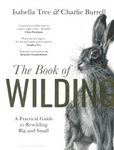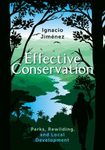By: Koen Arts(Editor), Liesbeth Bakker(Editor), Arjen Buys(Editor)
248 pages, colour photos, colour illustrations, tables
![Rewilding in Nederland: Essays over een Offensieve Natuurstrategie [Rewilding in the Netherlands: Essays on an Offensive Conservation Strategy] Rewilding in Nederland: Essays over een Offensieve Natuurstrategie [Rewilding in the Netherlands: Essays on an Offensive Conservation Strategy]]()
Click to have a closer look
About this book
Customer reviews
Related titles
About this book
Language: Dutch
Climate change and the sixth mass extinction are forcing the development of conservation strategies that go on the offensive. Rewilding – defined here as 'giving more space to natural processes' – can contribute to this. But is rewilding a viable strategy in the Netherlands, a country in which everything is planned, regulated, and ordered; a country in which humans determine everything?
This collection of essays allows different authors to give their vision on the ecological, managerial, and societal possibilities of rewilding. Rewilding usually takes place in large areas, whereby whole landscapes are allowed to go feral. Similarly, the reintroduction of crucial missing species like large grazers or predators is an example of rewilding. This raises questions whether rewilding is feasible within current conservation strategies, what the impacts are on biodiversity, and how society thinks about rewilding.
Rewilding also has a psychological dimension: the experience of nature's wildness. What does our desire to dominate nature reveal about humans? Does rewilding help to restore the lost bond between humans and nature? Can the Dutch let nature be and accept that it might develop in unexpected ways? Especially urban rewilding projects and options, also covered in this collection, highlight the potential issues and problems.
This collection of essays considers the various viewpoints in these discussions as a plus. Apparently, rewilding offers something – whether that is hope or something else – that stimulates many people to act. Rewilding, once developed as a technique in ecologists' toolkits, an idea reserved for specialists, has become a widespread phenomenon that touches on tensions and innovations around sustainability in society at large. This book introduces this phenomenon.
Summary in Dutch:
Klimaatverandering en de zesde golf van wereldwijd soortenverlies noodzaken tot het ontwikkelen van offensieve strategieën voor natuur- en milieubescherming. Rewilding – wat we in deze bundel voorzichtig definiëren als het ‘meer ruimte geven aan natuurlijke processen’ – kan daaraan een bijdrage leveren. Maar is rewilding wel mogelijk in Nederland, een land waarin alles gepland, gereguleerd en geordend is; waarin de mens alles bepaalt?
In deze essaybundel komen verschillende schrijvers aan bod die hun visie geven op de ecologische, bestuurlijke en maatschappelijke mogelijkheden van rewilding. Rewilding vindt meestal plaats in grote gebieden, waarbij een heel landschap wordt verwilderd. Ook de herintroductie van cruciale maar verdwenen soorten, zoals grote grazers of predatoren is een vorm van rewilding. Dit roept vragen op of rewilding past binnen het huidige natuurbeleid, wat de gevolgen zijn voor de biodiversiteit, en hoe de maatschappij aankijkt tegen rewilding.
Rewilding heeft ook een mentale kant, het ervaren van de wildheid van de natuur. Wat zegt het over ons als mens, dat wij de natuur willen beheersen? Helpt rewilding om de verloren verbindingen tussen mens en natuur te herstellen? Kunnen wij als Nederlanders de natuur loslaten, en accepteren dat zij zich niet altijd ontwikkelt zoals we hadden verwacht? Stedelijke rewildingprojecten en -mogelijkheden, die ook in deze bundel aan bod komen, zetten deze discussies op scherp.
Deze essaybundel ziet de veelheid aan discussies als een kracht. Blijkbaar biedt de term rewilding iets – of dat nu hoop is of niet – wat veel mensen energie geeft om ermee aan de slag te gaan. Rewilding, ooit ontwikkeld als een techniek uit de gereedschapskist van ecologen, een idee voorbehouden aan ingewijden, is inmiddels een fenomeen geworden waarbij spanningen en innovaties over duurzaamheid op een breed maatschappelijk vlak uitspelen. Dit boek is een introductie van dat fenomeen.
Customer Reviews
By: Koen Arts(Editor), Liesbeth Bakker(Editor), Arjen Buys(Editor)
248 pages, colour photos, colour illustrations, tables






![Rewilding in Nederland: Essays over een Offensieve Natuurstrategie [Rewilding in the Netherlands: Essays on an Offensive Conservation Strategy] Rewilding in Nederland: Essays over een Offensieve Natuurstrategie [Rewilding in the Netherlands: Essays on an Offensive Conservation Strategy]](http://mediacdn.nhbs.com/jackets/jackets_resizer_xlarge/25/259084.jpg?height=620)
![Rewilding in Nederland: Essays over een Offensieve Natuurstrategie [Rewilding in the Netherlands: Essays on an Offensive Conservation Strategy]](http://mediacdn.nhbs.com/jackets/jackets_resizer/25/259084.jpg)
![Rewilding in Nederland: Essays over een Offensieve Natuurstrategie [Rewilding in the Netherlands: Essays on an Offensive Conservation Strategy]](http://mediacdn.nhbs.com/jackets/jackets_resizer/25/259084_01.jpg)
![Rewilding in Nederland: Essays over een Offensieve Natuurstrategie [Rewilding in the Netherlands: Essays on an Offensive Conservation Strategy]](http://mediacdn.nhbs.com/jackets/jackets_resizer/25/259084_02.jpg)
![Rewilding in Nederland: Essays over een Offensieve Natuurstrategie [Rewilding in the Netherlands: Essays on an Offensive Conservation Strategy]](http://mediacdn.nhbs.com/jackets/jackets_resizer/25/259084_03.jpg)
![Rewilding in Nederland: Essays over een Offensieve Natuurstrategie [Rewilding in the Netherlands: Essays on an Offensive Conservation Strategy]](http://mediacdn.nhbs.com/jackets/jackets_resizer/25/259084_04.jpg)
![Rewilding in Nederland: Essays over een Offensieve Natuurstrategie [Rewilding in the Netherlands: Essays on an Offensive Conservation Strategy]](http://mediacdn.nhbs.com/jackets/jackets_resizer/25/259084_05.jpg)
![Rewilding in Nederland: Essays over een Offensieve Natuurstrategie [Rewilding in the Netherlands: Essays on an Offensive Conservation Strategy]](http://mediacdn.nhbs.com/jackets/jackets_resizer/25/259084_06.jpg)
![Rewilding in Nederland: Essays over een Offensieve Natuurstrategie [Rewilding in the Netherlands: Essays on an Offensive Conservation Strategy]](http://mediacdn.nhbs.com/jackets/jackets_resizer/25/259084_07.jpg)
![Rewilding in Nederland: Essays over een Offensieve Natuurstrategie [Rewilding in the Netherlands: Essays on an Offensive Conservation Strategy]](http://mediacdn.nhbs.com/jackets/jackets_resizer/25/259084_08.jpg)
![Rewilding in Nederland: Essays over een Offensieve Natuurstrategie [Rewilding in the Netherlands: Essays on an Offensive Conservation Strategy]](http://mediacdn.nhbs.com/jackets/jackets_resizer/25/259084_09.jpg)
![Rewilding in Nederland: Essays over een Offensieve Natuurstrategie [Rewilding in the Netherlands: Essays on an Offensive Conservation Strategy]](http://mediacdn.nhbs.com/jackets/jackets_resizer/25/259084_10.jpg)
![Rewilding in Nederland: Essays over een Offensieve Natuurstrategie [Rewilding in the Netherlands: Essays on an Offensive Conservation Strategy]](http://mediacdn.nhbs.com/jackets/jackets_resizer/25/259084_11.jpg)
![Rewilding in Nederland: Essays over een Offensieve Natuurstrategie [Rewilding in the Netherlands: Essays on an Offensive Conservation Strategy]](http://mediacdn.nhbs.com/jackets/jackets_resizer/25/259084_12.jpg)
![Rewilding in Nederland: Essays over een Offensieve Natuurstrategie [Rewilding in the Netherlands: Essays on an Offensive Conservation Strategy]](http://mediacdn.nhbs.com/jackets/jackets_resizer/25/259084_13.jpg)
















![Veldgids Korstmossen [Field Guide to Lichens]](http://mediacdn.nhbs.com/jackets/jackets_resizer_medium/25/259434.jpg?height=150&width=101)






![Veldgids Vogeltrek in Beeld: Trekvogels Herkennen aan Hun Vliegbeeld [Field Guide to Bird Migration: Recognizing Migratory Birds by Their Silhouette]](http://mediacdn.nhbs.com/jackets/jackets_resizer_medium/26/263583.jpg?height=150&width=88)
![Het Nachtvlinderboek: Macronachtvlinders van Nederland en België, Inclusief Rupsen [The Book of Moths: Nocturnal Macro-Moths of the Netherlands and Belgium, Including Caterpillars]](http://mediacdn.nhbs.com/jackets/jackets_resizer_medium/24/247580.jpg?height=150&width=113)
![Handboek Europese Vogels: Alle Kenmerken in Beeld [Handbook of European Birds: All Characteristics in Pictures] (2-Volume Set)](http://mediacdn.nhbs.com/jackets/jackets_resizer_medium/25/256024.jpg?height=150&width=216)
![Veldgids Zweefvliegen [Field Guide to Hoverflies]](http://mediacdn.nhbs.com/jackets/jackets_resizer_medium/25/250077.jpg?height=150&width=100)
